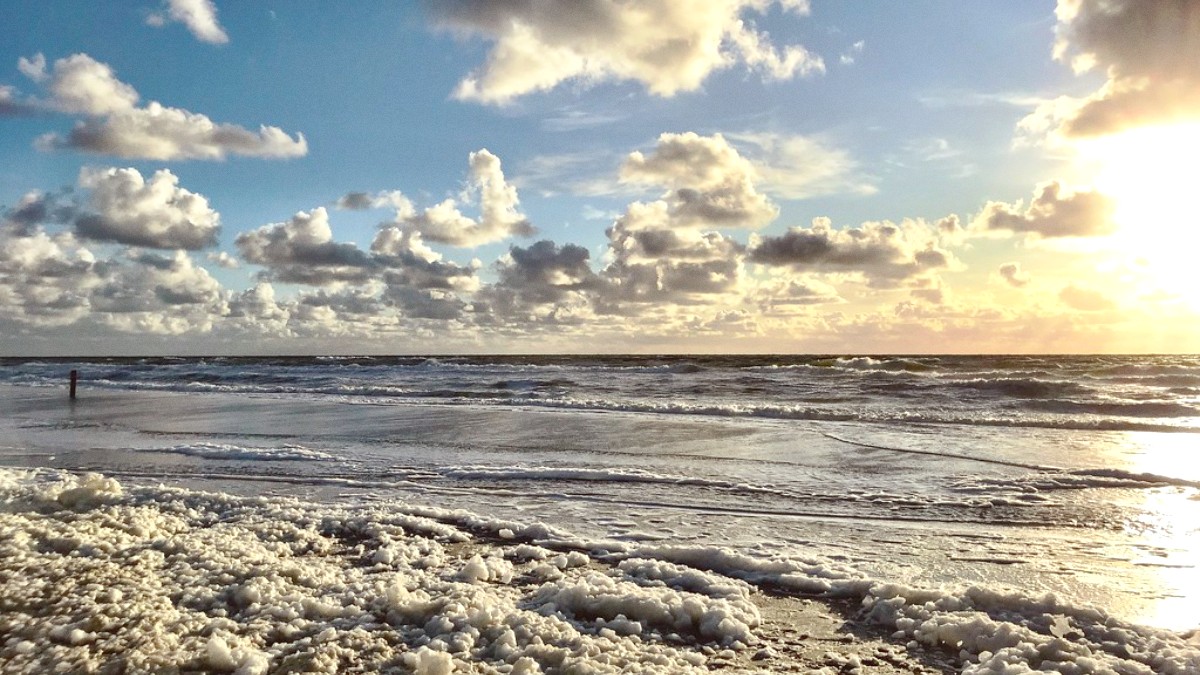
Frisian Islands, Netherlands
The main mobile providers in the Netherlands are KPN, Vodafone, and T-Mobile. Prepaid SIM cards ("Prepaid SIM") are available from their official shops, or from larger supermarkets and electronics stores in mainland towns like Den Helder or at Amsterdam Schiphol Airport. These prepaid options present various data packages suitable for tourists. For travelers from other EU countries, existing EU SIM cards function in the Netherlands without extra roaming charges, making communication seamless. Texel has reliable 4G and 5G coverage across most of the island.
Internet access is widely available and typically free in hotels, B&Bs, most restaurants, cafes, and many public spaces across Texel. Accommodation providers usually present Wi-Fi details upon check-in.
PostNL is the national postal service of the Netherlands. PostNL service points are situated within larger supermarkets or small convenience stores in Texel's main villages (Den Burg, De Koog). These points permit sending postcards or packages.
Dutch is the official language of the Netherlands. While Frisian occurs in the wider Frisian Islands region, it is not predominantly spoken on Texel. English is widely spoken throughout the Netherlands, especially so in tourist-facing businesses, hotels, restaurants, and attractions on Texel. Most Dutch people have a good command of English, making communication generally easy for English-speaking visitors.
Learning a few basic Dutch phrases is always appreciated and can enhance your interactions.
Operating hours across Texel.
Generally open Monday to Saturday, typically from 9:00 AM or 10:00 AM until 5:00 PM or 6:00 PM. In Den Burg, Friday evenings are often "late shopping" evenings, with shops staying open until 9:00 PM. Outside the peak season, some smaller shops might have shorter hours or close on certain weekdays. On Sundays, shops are often closed or operate on significantly reduced hours, especially outside the main tourist areas of Den Burg and De Koog.
Generally, restaurants offer lunch service from around 12:00 PM to 2:30 PM, and dinner service from 5:30 PM or 6:00 PM until 9:30 PM or 10:00 PM. Many restaurants close mid-afternoon between lunch and dinner service.
Most museums and attractions operate from approximately 10:00 AM to 5:00 PM. Checking their specific websites for current opening times is wise, as these vary seasonally, with reduced hours or complete closures in the low season (November-March).
Banks generally operate on weekdays from 9:00 AM to 5:00 PM. Direct bank services for tourists are rarely needed; ATMs ("Geldautomaat") are widely available in Den Burg and De Koog and operate 24/7. Credit and debit cards are widely accepted for payments.
Major Dutch public holidays significantly impact business hours. Many shops, banks, and some services may close or operate on reduced schedules on these days. Planning your activities and errands accordingly is prudent if your visit coincides with any of these dates.
Always verify specific opening times, especially during off-season or holidays.
Navigate social interactions on Texel.
A handshake is a common and appropriate greeting when meeting someone new. Direct eye contact generally appears polite and a sign of sincerity.
Texel's atmosphere is generally relaxed and casual. No strict dress code exists for most tourist activities. Comfortable, practical clothing is suitable for exploring the island, dining in restaurants, and visiting attractions. For religious sites like churches, while not strictly enforced, dressing respectfully (e.g., shoulders and knees covered) is good practice.
Rounding up the bill or leaving a small amount for good service is common, but it is not mandatory. Dining in restaurants is usually unhurried.
Taking photographs in public spaces on Texel is generally acceptable. Ask for permission before photographing individuals, especially children, to respect their privacy. Be discreet and respectful when taking photos in religious sites or on private property. Some museums or specific exhibits might prohibit photography or flash photography, so observe any signs.
Engage with locals politely and openly. A simple "Hallo" or "Dank u wel" in Dutch is always appreciated.
Texel focuses on accessibility for all travelers, though challenges might exist in certain natural or historic areas.
Modern public buses on Texel (Line 28) generally feature ramps or low floors for accessibility. The Texelhopper flexible transport service aims for accessibility; specifying your needs when booking is advisable. The TESO ferry from Den Helder to Texel accommodates wheelchair users and those with mobility challenges, with ramps for boarding vehicles and passengers. Within the villages, sidewalks are generally paved and smooth. Many of the island's extensive cycling paths are flat and well-maintained asphalt, which might suit some mobility devices. Paths through natural areas like the dunes can be sandy, uneven, or unpaved, posing some challenge.
Ecomare, the nature center and seal sanctuary, is largely accessible, featuring ramps and wide pathways. Museum Kaap Skil, the maritime museum in Oudeschild, is also largely accessible, with good access for wheelchair users to most exhibits. While the vast sandy beaches can be difficult to navigate, some main beach access points (e.g., Paal 17 near De Koog) have hardened paths that extend closer to the sea. Some beach pavilions might offer special beach wheelchairs for rent ("Jutterrolstoelen") that can navigate the sand, for visitors to get closer to the waterline.
Specific services tailored for travelers with visual or hearing impairments might be limited on the island. Guide dogs are generally allowed in public places and on public transport. Communication in English is usually easy, which might overcome some barriers.
For the most accurate and up-to-date local advice on accessibility, contacting the local VVV Texel tourist office directly before your visit is highly recommended. They present detailed information regarding accessible accommodations, specific attractions, and suitable activities, and might offer contact details for specialized local service providers.
Be aware that some paths may be sandy or uneven in the dunes. Choose clearly marked accessible routes if mobility is a concern.